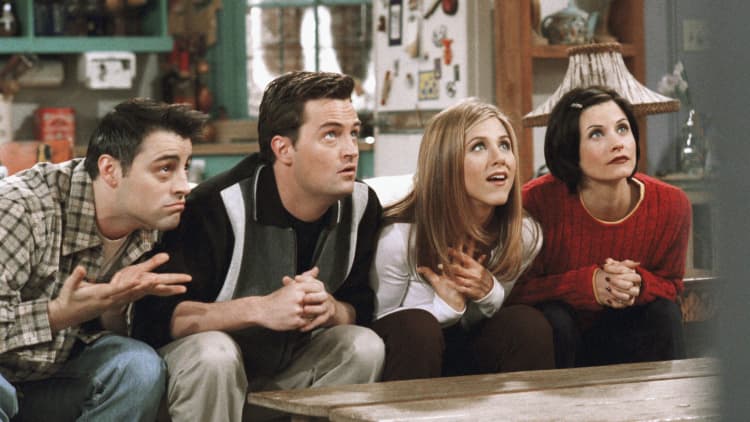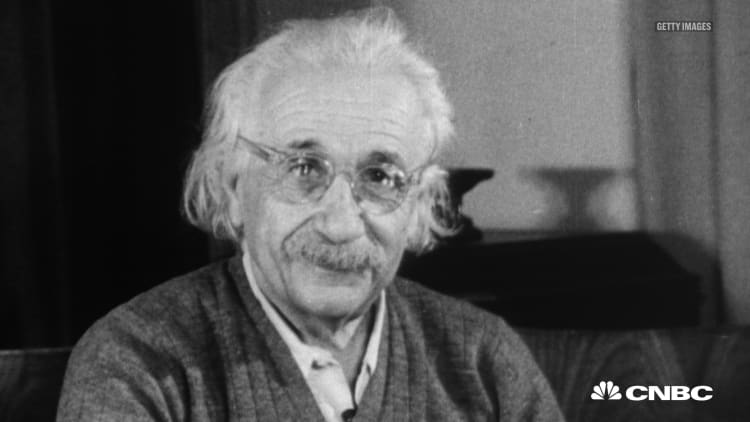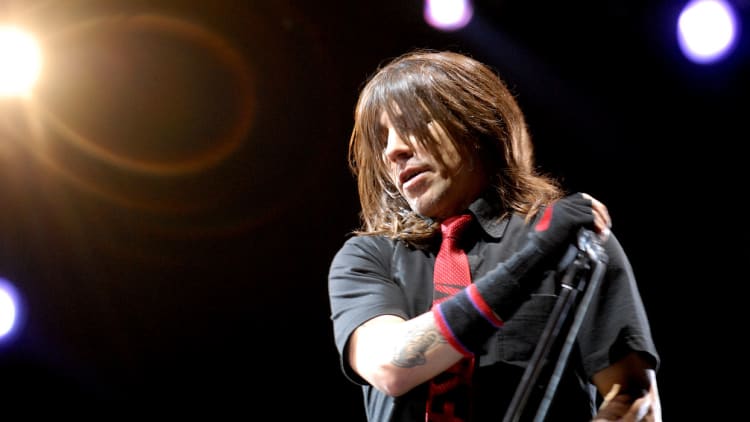Red Hot Chili Peppers frontman Anthony Kiedis has had a long career. He started RCHP with two high school friends in the early 80s, and the band quickly began to gain traction in their hometown of Los Angeles.
The Chili Peppers released their debut album in 1984, although they didn't hit it big for nearly a decade when 1991's "BloodSugarSexMagik" rose to the top of the charts. Throughout his more than 30 years playing music, Kiedis has won six Grammys and helped produce countless hits.
As his career has developed, Kiedis' spending habits have shifted as well. In his youth, the majority of his cash went to skateboards and, later, drugs. But today, he prefers to spend on his family, which includes his 10-year-old son, Everly Bear.
"In the '70s it was skateboards, in the '80s it was drugs, in the '90s it was art, and now it's my family," Kiedis told Maxim during a 2011 interview when asked what he spends the most money on.
Actress Teri Hatcher, who starred on ABC's "Desperate Housewives" from 2004 to 2012, has expressed similar priorities.
In 2005, having just returned from an African safari with her daughter Emerson, Hatcher told People, "I don't spend my money on sports cars or new million-dollar houses," she says. "But being able to go on the trip of a lifetime is pretty special."
Hatcher told the magazine, "I'm a very conservative person. I drive my cars for 10 years until they have 100,000 miles on them. To me, feeling comfortable means having way more than I need in the bank."
Kiedis and Hatcher choose to spend their money on loved ones, instead of objects, which is likely bolstering their own fulfillment, as well as that of their families. Money can't outright buy happiness, but how you choose to use it plays a central role in your overall comfort and contentment.

"What matters for your wellbeing is what you're doing with the minutes and days of your life," University of British Columbia psychology professor Elizabeth Dunn previously told CNBC Make It. "If you have a lot of money and a lot of nice stuff, but you're spending your time doing things that you dislike, then your minute-to-minute happiness and overall happiness is likely to be pretty low."
Similarly, research has found that experiences, such as family vacations, hold more value and foster stronger relationships in children than toys do.
"An experiential gift elicits a strong emotional response when a recipient consumes it — like the fear and awe of a safari adventure, the excitement of a rock concert or the calmness of a spa — and is more intensely emotional than a material possession," says Cindy Chan, assistant professor in the University of Toronto's Scarborough's Department of Management and co-author of a 2016 study on how gift giving affects relationships, which was published in the Journal of Consumer Research.
Don't miss:
- Shaq once spent $1 million in an hour—here are 3 other NBA stars who lost thousands
- Here's how much money you need to start investing, according to self-made millionaire Tony Robbins
- Actress Teri Hatcher drives the same car for 100,000 miles—here's why it's such a smart choice
Like this story? Like CNBC Make It on Facebook!




